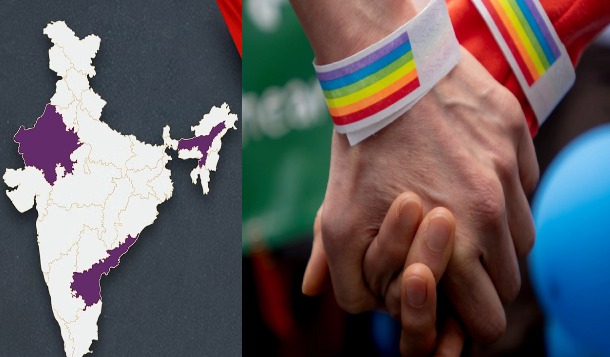
The states of Assam, Andhra Pradesh, and Rajasthan have all opposed the legalization of same-sex marriages in India on Wednesday.
The states expressed their views in response to a letter issued by the Central government on April 18 asking comments from all states on the issues raised in the same-sex marriage case before the Supreme Court.
The state of Andhra Pradesh informed that it had consulted religious leaders from various religions in the state, all of them were opposed to same-sex marriages being legalized.
As a result, the State stated that it was opposed to same-sex marriage and/or those belonging to the LGBTQIA+ group.
According to the state of Assam, the recognition of marriage for same-sex couples and the LGBTQIA+ population calls into question the legality of marriage and personal laws implemented in the state.
The government stated that, while the matter calls for broad discussions on the various aspects of the institution of marriage as a social phenomenon, the legal understanding of marriage has been that of an agreement or contract between two people of opposite genders.
Furthermore, it noted that legislation is the prerogative of the legislature, both at the Centre and in the States, and that the courts should assess legislative affairs in accordance with the essential principles of our democratic structure.
The letter also said that marriage, divorce, and ancillary matters are governed by the state legislature and fall under entry 5 of the Concurrent list of the Constitution.
As a result, the Assam government challenged the petitioner’s position in the case and requested more time to express its views further.
The state of Rajasthan stated that according to report of the Rajasthan Department of Social Justice and Empowerment, same-sex marriages will create an imbalance in the social fabric, with far-reaching ramifications for the social and family system.
In this regard, the government sent letters to all District Collectors in the state to solicit their views. According to the State, the Collectors concluded that there should be no provision for same-sex marriages because the practice is not common and is against the public opinion.
Furthermore, it noted that if popular opinion supported same-sex weddings, the State legislature would have addressed the issue.
As a result, the State opposed same-sex marriages but stated that it was not wrong for two homosexual people to live together.
The governments of Maharashtra, Uttar Pradesh, Manipur, and Sikkim also responded to the letter from the Centre, requesting extra time to present their views.
The hearing on the matter will continue tomorrow.




